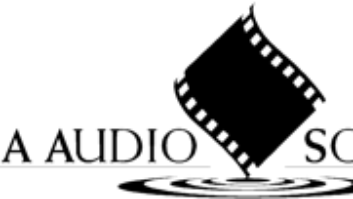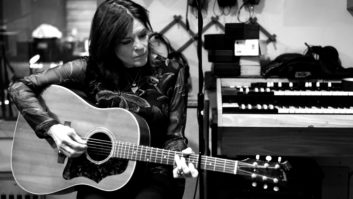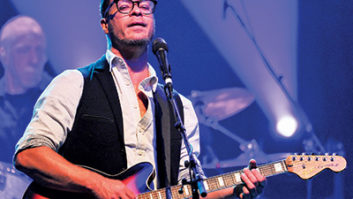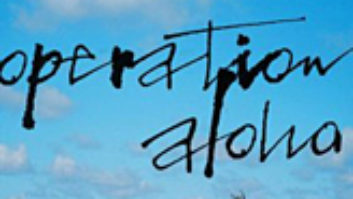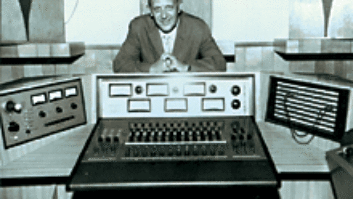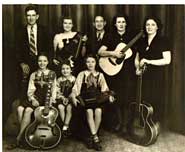
An archival photo of the Carter Family, featuring (from back, L-R): A.P. Carter, Janette Carter, radio personality Announcer Bill, Sara Carter and Mother Maybelle Carter. In front are the Carter Sisters: Helen (l), Anita and June (r).
Photo: Courtesy of the Cash Family personal photo collection
It has been quite an emotional couple of years for producer John Carter Cash. In May 2003, his mother, singer June Carter Cash, died unexpectedly, a week after undergoing heart surgery. Then in September of last year, he lost his father, country legend Johnny Cash, to complications from diabetes. Somehow, in the midst of his grief, he managed to complete an album project that includes performances by each of his parents, and which pays homage to the legacy of the most famous family in country music. The Unbroken Circle: The Musical Heritage of the Carter Family is both a fitting tribute to the producer’s — indeed, of country music’s — roots and a wonderful showcase for some of our finest contemporary singers and pickers.
Hailing from the hills of Virginia, the Carter Family laid the foundation for modern country music in the ’20s, ’30s and ’40s, recording hundreds of songs: old mountain tunes, traditional ballads that came over from the British Isles and a number of now-famous original songs — written by patriarch A.P. Carter — including “Will the Circle Be Unbroken,” “Wildwood Flower,” “Wabash Cannonball,” “Keep on the Sunny Side” and so many more. June Carter was the daughter of original Carter Family member Mother Maybelle Carter (cousin of A.P.’s wife, Sara, who was also in the group) and grew up singing as part of the family act with her sisters, Helen and Anita. In a wedding of true country music royalty, June married Johnny Cash in 1968; John Carter Cash was born two years later.
Every few years, it seems, Nashville re-discovers old-time country music through the work of contemporary artists. In the early ’70s, it was the Nitty Gritty Dirt Band’s epic, star-studded celebration of traditional country called Will the Circle Be Unbroken. In the ’80s, it was Emmylou Harris’ Roses in the Snow and Angel Band. Just three years ago, it was O Brother, Where Art Thou? and the Down From the Mountain tour. So, The Unbroken Circle has arrived at a time when the audience is primed for this kind of music, and it has the star power to perhaps reach beyond the usual traditional music audience.
Clockwise from left: George Jones, Emmylou Harris, the Peasall Sisters and Sheryl Crow all contributed their vocal stylings to John Carter Cash’s tribute to his family, The Unbroken Circle.
Photos: David McLister
The CD’s 15 tracks feature a nice blend of family, friends and perhaps a few unexpected contributors working through a diverse collection of mostly less well-known tunes associated with the Carter Family. “We didn’t want to dictate what the different singers would do,” says John Carter Cash. “We made some suggestions, of course, but a lot of them had their own ideas, which was fine.” In the case of John Prine, for instance, “Bear Creek Blues” has been in his repertoire for years. Other artists on the collection include George Jones, who lends such authority to “Worried Man Blues”; Harris, who sings “On the Sea of Galilee” with the Peasall Sisters (the three cuties who sang “The Highways and the Hedges” on the O Brother soundtrack); octogenerians Janette and Joe Carter, the children of A.P. and Sara Carter; Rosanne Cash; the Nitty Gritty Dirt Band, joined by Kris Kristofferson; Marty Stuart; Willie Nelson; Norman and Nancy Blake; Shawn Colvin (with Earl and Randy Scruggs); The Whites with Ricky Skaggs; bluegrass titans the Del McCoury Band; Sheryl Crow; June Carter (a track from her 2003 album Wildwood Flower, also produced by her son, John); and in his final recording, Johnny Cash. There are gospel numbers, love songs, murder ballads, tunes about growing up, growing old and everything in between. It’s mostly acoustic instruments, but an electric guitar shows up on a couple of tracks, and there’s even drums on a pair.
“I’ve loved this kind of music my whole life,” Cash says, “so it was really a matter of life-long inspiration for me to do this kind of project. Within the last eight or 10 years, I’ve become even more interested in it, and over the last couple of years, I’ve done quite a bit of research into the songs. The Carter Family recorded more than 300 songs and I was unfamiliar with a lot of them until fairly recently.
“In dealing with my mother’s record, Wildwood Flower, I sort of grasped the tip of the iceberg, so to speak,” he continues, “and I realized there was a lot more to look into. So it seemed to be a natural progression to do a record like this that celebrated the Carters’ music and style. A lot of the people on the record are people I consider to be in that tradition. And I wanted them to perform it how they felt it, whether it was full of country vigor or a little rock ‘n’ roll like Marty Stuart.”
Typical of these sorts of multi-artist projects, The Unbroken Circle was cut in a number of different studios. Willie Nelson tracked his song in his famous Pedernales Studio in Spicewood, Texas. Sheryl Crow’s moving version of “No Depression in Heaven” was cut at Avatar Studios in New York with Roy Hendrickson engineering. Emmylou Harris and the Peasall Sisters were captured at Sound Stage Studio’s Groove Room in Nashville, as was Shawn Colvin — except for her lead vocals, which were recorded at Cedar Creek in Austin (engineered by Fred Renmert). The tunes by Janette and Joe Carter and June Carter came from sessions at the Carter Family homestead in Maces Springs, Va. However, the majority of the songs were cut at the Cash Cabin Studio in Hendersonville, Tenn., with Chuck Turner engineering, ably assisted by Mark Petaccia.
Built in the ’70s, Cash Cabin is what its name suggests: an actual log cabin, that has been transformed into a recording studio. “It’s a very comfortable place, as you might imagine,” engineer Turner says. “Not surprisingly, it has a kind of dark and woody sound to it. About a year ago, we added on a tracking room and a couple of booths with hardwood floors and rough-cut cedar or pine wall and ceiling treatments. But it’s still very rustic.” Like the Carter family, Turner hails from Virginia, but he’s been in Nashville for a number of years, working on a variety of pop, rock and country projects. He’s engineered most of John Carter Cash’s projects the last couple of years, including Cash’s 2003 solo album, Bitter Harvest.
“The cool thing about working with John is it’s real,” Turner offers. “We don’t have to go lookin’ for vibe; it’s built-in, as it is with most of these artists — these are the real-deal artists in my opinion.
“We cut The Unbroken Circle the way we like to cut just about everything,” Turner continues, “completely live, with very few, and sometimes no, overdubs. Instead of doing a lot of overdubs and punching in, we prefer to use the best of the takes. Sometimes, we’ll combine a couple of takes, but in this case, a lot of what’s on the album are first takes. This is very traditional music — there’s not a lot of fluff and it doesn’t need to be fussed over.”
Turner says that the Cash Cabin control room is centered around a Soundcraft Ghost console “that we use mostly for monitoring, and then we have assorted mic pre’s and compressors — it’s real basic. This album probably has a deeper track count than most of what we do. It’s very rare that I use more than six or eight microphones just because of the type of music it is — there aren’t a lot of big drum sets. Marty Stuart’s track has a drum kit, but I still only used four mics on it. We put up a baffle here and there, but you really didn’t need it. This kind of music isn’t meant to be separated and divided into sections.”
For microphones, “We use a lot of Audio-Technica mics: 4050s, 4033s on vocals and guitars. We also have a couple of the Shure KSMs that we use. Most of the acoustic instruments are close-miked — I’m a single-mic guy with guitars. Depending on the session, I’ll use either Audio-Technicas or [AKG] 451s; maybe a [Neumann] KM84 in there.” The album was recorded to Pro Tools and then mixed by Turner (with one exception) at Quad Studios in Nashville on a Neve 8068.
“We don’t toil over the mixes,” Turner says of his and Cash’s approach. “You don’t want to lose the magic of the track. Basically, I just want to make sure everything has its space, and I try to lay out the mix to reflect where people were in the room. I want to hear it the way I see it [go down in the tracking].”
The one song on the album Turner did not mix was Johnny Cash’s striking version of “Engine One-Forty-Three,” one of those classic, gruesome, death-on-the-railroad tales that are so much a part of the American folk tradition. “I got sick and couldn’t do the mixing date,” Turner says, “so John [Carter Cash] ended up doing it, and, actually, it’s appropriate that he did. It’s a neat little twist that he got to mix his father’s last track.”
“It did end up being the last thing he ever recorded, just a couple of weeks before he died,” Carter Cash adds. “We did it here in the Cabin. He was weak; you can hear that. But it’s totally honest. It’s who he was at that time. He still told a great story and just like always, you can feel the emotion. The last line he ever sang was ‘Nearer my God to thee.’ Pretty strong stuff there,” he adds quietly. “That session was very meaningful for me. It was very close and tender.”
Carter Cash notes that Janette and Joe Carter will have an album of their own coming out soon, “and they’re really very close in style to the original Carter Family. They’re the real thing.”
Turner adds, “And keep an eye on the Peasall Sisters. Those girls are something else! They’ve got the Carter Sisters’ thing goin’ on like you wouldn’t believe. You’ll be hearing a lot more from them.”
As we will from Norman and Nancy Blake and Emmylou Harris and the others who have devoted so much of their lives to performing traditional music. “The title of the album says it all,” Carter Cash concludes. “Hopefully, what we’re doing is carrying on that unbroken circle.”

